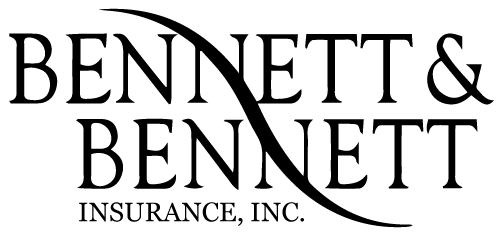When you rent an apartment, your landlord will normally be responsible for the insurance necessary to protect against damage to the building itself, but it’s up to you to protect your possessions.
Use the yellow hot spots and explore how renters insurance can help protect against common risks.

Unpredictable losses can occur to your property due to burglary, fire, water damage, storm, and more.
Personal property, such as furniture, rugs, TVs, stereos, clothes, and more may be covered under your basic insurance policy. However, items like jewelry, furs, silverware, antiques, collectibles, and other valuables should likely be insured separately.
Some types of personal property are subject to limits of coverage under renters insurance policies. These limits vary by the type of property and by what caused the loss or damage. For example, jewelry, bicycles, collectible cards, and coins may have limited coverage or may not be covered.
Obtain a personal floater or schedule your valuable possessions to ensure you’ll have the money to replace them.
If the building you live in has a loss from a covered peril under your renters insurance policy that makes your apartment or home uninhabitable, you will need to find somewhere else to live while the repairs are undertaken. This can be expensive and inconvenient.
Be sure your insurance policy includes additional living expense coverage. If you need to move out and rent another location, this coverage provides for the increase in living expenses–such as moving costs, increased food costs, and other expenses.
You are responsible if you or a guest in your unit trips and falls or sustains an injury while on your property.
Be sure that you have adequate liability insurance to protect for claims made against you for bodily injury or property damage – such as a slip and fall or other allegation. Liability coverage also provides protection should you become legally liable for unintentional bodily injury or property damage anywhere in the world.
You're responsible if a guest is injured while on your property and you may be required to pay their medical expenses.
Ensure your insurance policy covers this risk. In the event a person is injured in your unit, he or she can submit medical bills to your insurance company. Medical expenses are usually paid without a liability claim being filed against you, with typical limits ranging from $1,000 to $5,000.
You may not be able to rent the apartment or home if your landlord or property manager requires renters insurance and you do not have it.
Having a renters insurance policy allows you to provide a certificate of insurance to the landlord or property manager showing that you have the coverage required to rent the apartment or home.
Any improvements or betterments that you have made to your unit are subject to damage.
Be sure to obtain coverage for improvements or betterments that you have installed in your apartment or home.
You may take your valuable property outside of your unit. For example, what happens if your laptop or golf clubs get damaged or stolen while traveling?
Be sure to add off premises theft coverage to your policy to cover your personal property while your belongings are away from your home. Auto insurance does not usually cover personal property stolen from your car.
You may be responsible for damage to your apartment or dwelling should you, for example, have a leaking sink or accidentally start a fire.
Be sure your policy has liability coverage that includes tenants legal liability or premises liability. Your landlord may require that you to have this type of insurance protection in place as a requirement before renting the property to you.
Renters insurance covers against damage or loss from burglaries, along with loss from events such as fires, certain types of water damage and more. Be sure to check your renters insurance coverage details–there will usually be both an overall limit on the payout and a maximum amount for any one renters insurance claim.
You may also get a payment toward temporary accommodation if the rental property is uninhabitable after one of the events the renters insurance policy covers.
Some policies also include liability coverage that could pay out if you accidentally damage the rental property itself or if somebody is injured while visiting you at your apartment.
Remember, even if you park a vehicle on the rental property itself, your car usually won’t be covered by renters insurance.
If you rent an apartment, you need renters insurance. We’d be happy to walk you through the options to ensure you have the insurance coverage and protection you need.


